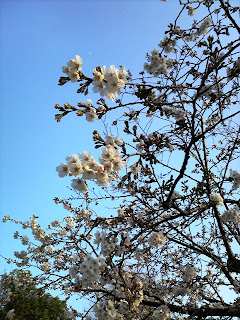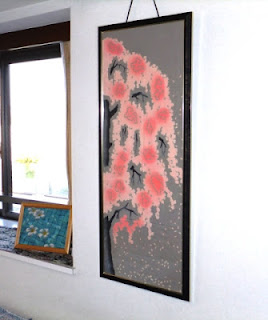I would like to share these sakura photographs with you. I shot these photos around our office today.
 |
| Higashigaoka, Meguro-ku, Tokyo |
In Tokyo, sakura flowers full bloom. Once sakura reach to full bloom status, the flowers stay for 3 - 5 days, and then they will scatter very quickly. That means you will have less than a week chance to enjoy flowers. The scattering is triggered by rain we often have during this season. We refer this rain as "flower scattering rain".
When sakura full blooms, the flowers come out even from the stem!
 |
| Fukasawa, Setagaya-ku, Tokyo |
In Tokyo, many sakura trees are planted along roads, pavements and small rivers for public enjoyment. The trees are maintained by the city. Althoug we only have one week for flower viewing during the year, very few argue against using tax for tree maintenance. Sakura are soul, spiritual trees for the Japanese. Cutting a sakura tree is bad moral.
If you look up a big sakura tree, you can enjoy more. The sky is covered with flowers!
 |
| Fukasawa, Setagaya-ku, Tokyo |
This pine tree is planted at a house entrance. I presume that this residence is owned by a wealthy person.
Thank you for visiting our blog!









 http://www.nipponcraft.com/index_en_jpy_73.html
http://www.nipponcraft.com/index_en_jpy_73.html
